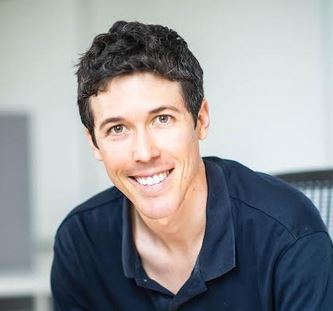Honored from Within
by A.J. Kleber
As spring begins in earnest, let’s take a look back at a winter that, for all Boston’s chilly temperatures, was anything but barren when it comes to ECE researchers!
Early Career Excellence in Research Award

“Autonomy” is a word that gets thrown around quite a lot in electrical and computer engineering, typically in reference to AI-driven technologies such as autonomous vehicles (otherwise known as self-driving cars), smart devices, and robotics. Assistant Professor Eshed Ohn-Bar’s research certainly features this kind of autonomy; in fact, his contributions to AV system research, including situational and robust learning algorithms, have helped to define benchmarks in the field.
However, Ohn-Bar’s work concerns itself with another kind of autonomy as well: the human kind. A true societal engineer, much of his research focuses on inclusive design, assistive technology, and accessibility, exemplified in such projects as the “OpenGuide” guidance system for visually impaired travelers.
This significant and impactful work has earned Professor Ohn-Bar an Early Career Excellence in Research Award from the Boston University College of Engineering. The award will be presented next week at the 2025 Charles DeLisi Award and Lecture event on Thursday, April 3.
Professor Ohn-Bar joined Boston University in 2020. His accolades include a prestigious IEEE Intelligent Transportation Systems Society Best Dissertation Award, a Humboldt Research Fellowship, and a number of Best Paper Awards. His work is funded by the NSF and the Department of Transportation, among others.
Dean’s Infrastructure Award

Professor Roberto Paiella was among the inaugural recipients of the Boston University College of Engineering’s newly-minted Dean’s Research Infrastructure Awards (DRIA). Per College of Engineering Dean ad interim Elise Morgan, the awards are intended to provide faculty with the practical resources necessary to “carry out their bold ideas” – with an emphasis on projects with the potential for significant societal impact.
An optoelectronics specialist with a focus on quantum structures, nanophotonics and metasurfaces, Paiella is using his DRIA funds to support the development of a unique new camera designed for extreme miniaturization. The purchase of a tunable supercontinuum laser will provide vast new opportunities for experimentation and testing.
AI Research Resource Program Awards
In 2024, the Boston University Office of Research and the Hariri Institute for Computing established the BU AI Research Resource Program (BU-AIRR) to drive large-scale AI research by funding access to the New England Research Cloud (NERC)’s impressive array of cloud computing resources.
Of the twenty-six projects selected for BU-AIRR support, almost half are helmed by ECE faculty, with applications ranging from medical research, to energy-efficient computing, to improving and developing training methods for AI systems themselves.
 Professor Kayhan Batmanghelich is working on two projects with a tight focus on medical AI in clinical settings: one to develop an anatomically and biomechanically informed generative foundational model for lung CT images, and another to create a multi-modal foundational model to improve scalability and equitability in breast cancer detection and risk prediction.
Professor Kayhan Batmanghelich is working on two projects with a tight focus on medical AI in clinical settings: one to develop an anatomically and biomechanically informed generative foundational model for lung CT images, and another to create a multi-modal foundational model to improve scalability and equitability in breast cancer detection and risk prediction.
 In collaboration with a number of her ECE colleagues, Professor Ayse Coskun’s two BU-AIRR-supported projects involve practical, and crucial, improvements for cloud computing: one to automate security operations, and another to advance energy-efficiency and sustainability for High-Performance Computing systems and data centers.
In collaboration with a number of her ECE colleagues, Professor Ayse Coskun’s two BU-AIRR-supported projects involve practical, and crucial, improvements for cloud computing: one to automate security operations, and another to advance energy-efficiency and sustainability for High-Performance Computing systems and data centers.
 A pair of Professor Wenchao Li’s projects to improve learning and training received support for the study of task alignment and multi-task generalization in Decision Transformers (with applications to offline reinforcement training), and the development of novel uncertainty quantification methods to improve the reliability of vision-language models in automatic radiology report generation, respectively.
A pair of Professor Wenchao Li’s projects to improve learning and training received support for the study of task alignment and multi-task generalization in Decision Transformers (with applications to offline reinforcement training), and the development of novel uncertainty quantification methods to improve the reliability of vision-language models in automatic radiology report generation, respectively.
 In collaboration with members of the Computer Science faculty, Professor Eshed Ohn-Bar is investigating effective continual learning approaches for LLMs, especially in multi-modal settings, to reduce the need for re-training models from scratch in order to enhance scalability and resource efficiency.
In collaboration with members of the Computer Science faculty, Professor Eshed Ohn-Bar is investigating effective continual learning approaches for LLMs, especially in multi-modal settings, to reduce the need for re-training models from scratch in order to enhance scalability and resource efficiency.
 Professor Venkatesh Saligrama is partnering with Professor Boqing Gong (CS) on projects headed by each of them: an effort to utilize video data from the perspective of young children to investigate language and vision-related learning techniques for efficient, developmentally plausible AI systems, and another towards democratizing research on the pretraining of foundation models to invite contributions from a wider field of researchers.
Professor Venkatesh Saligrama is partnering with Professor Boqing Gong (CS) on projects headed by each of them: an effort to utilize video data from the perspective of young children to investigate language and vision-related learning techniques for efficient, developmentally plausible AI systems, and another towards democratizing research on the pretraining of foundation models to invite contributions from a wider field of researchers.

 Professor David Starobinski is engineering graph-based methods for the automation of cybersecurity operations, while Professor Gianluca Stringhini is using Learning to Rank techniques, LLMs, and image processing to create a multi-modal decision agent for identifying social media content for moderation.
Professor David Starobinski is engineering graph-based methods for the automation of cybersecurity operations, while Professor Gianluca Stringhini is using Learning to Rank techniques, LLMs, and image processing to create a multi-modal decision agent for identifying social media content for moderation.
 Leveraging the Boston University Alzheimer’s Disease Research Center (ADRC) Digital Pathology Core, the world’s largest digital neuropathology database, Professor Lei Tian is developing the first neuropathology-specific foundation model for the purpose of advancing our understanding of neurodegenerative diseases.
Leveraging the Boston University Alzheimer’s Disease Research Center (ADRC) Digital Pathology Core, the world’s largest digital neuropathology database, Professor Lei Tian is developing the first neuropathology-specific foundation model for the purpose of advancing our understanding of neurodegenerative diseases.
